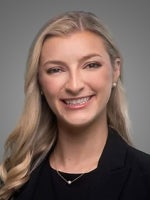On July 11, 2025, in United States v. Schena,[1] the Ninth Circuit adopted an expansive interpretation of the Eliminating Kickbacks in Recovery Act (EKRA), applying the law to any payment that could have the effect of inducing a referral, even downstream, regardless of who received the payment. The court affirmed laboratory operator Mark Schena’s convictions for violating EKRA resulting from his percentage-based payments to marketing intermediaries who provided misleading information to referring providers.
What Is EKRA?
Enacted in 2018, EKRA prohibits the knowing and willful payment of anything of value “to induce a referral of an individual to a … laboratory” or “in exchange for an individual using the services” of a recovery home, clinical treatment facility, or laboratory.[2] Unlike the Anti-Kickback Statute (“AKS”)[3], which applies to only federal healthcare programs, EKRA applies to services covered by any “health care benefit program” in interstate commerce. Also in contrast to the AKS, which broadly excludes from liability any amount paid by an employer to a bona fide employee for employment in furnishing federal health care program covered services, EKRA provides a much more limited safe harbor for employment compensation, applicable only to payments that do not vary with referrals, tests performed, or insurance billings.[4]
Factual Background
Schena operated a medical testing laboratory that focused on testing blood samples for allergies and, beginning in 2020, COVID-19 antibodies. Schena paid marketers to pitch the laboratory’s services to medical professionals, even though the tests were allegedly unnecessary, costly, and inferior to other testing methods. Schena paid the marketers a percentage of the revenue his laboratory generated from their accounts. The evidence at trial showed Schena’s marketers misrepresented the laboratory’s services to medical professionals to convince them to order tests from Schena’s laboratories, and Schena was convicted on two counts of EKRA violations, one count of conspiracy to violate EKRA, and six additional counts. Schena subsequently appealed his convictions to the Ninth Circuit.
The Ninth Circuit’s Interpretation of EKRA
The Ninth Circuit found that Schena and the government disagreed on two key questions: (1) whether EKRA applies to payments made to marketing intermediaries, as opposed to only payments to referring clinical providers or persons who interact directly with patients, and (2) what it means for a payment to a marketing intermediary to “induce a referral”.
1) EKRA applies to payments made to marketing intermediaries.
The court determined that the scope of EKRA is not limited to payments made to persons who have the authority to refer patients or who directly interact with patients. It noted that such a limit on EKRA would allow recipients of unlawful payments to evade EKRA by enlisting a subordinate or other agent to pressure a patient into using the provider’s services. Accordingly, the court concluded that inducing a referral includes paying a marketer to cause an individual to obtain a referral from a physician through various means, including by marketing to physicians, and EKRA extends to payments to such marketers.
In reaching this conclusion, the Ninth Circuit analyzed a district court’s decision in S&G Labs Hawaii, LLC v. Graves, which held EKRA did not apply when a marketing employee interfaced with doctors and treatment providers because the client accounts they serviced were not “individuals” whose samples were tested.[5] The Ninth Circuit rejected that view, explaining that the phrase “to induce a referral of an individual” means that the ultimate object of the inducement must be a natural person to whom medical services would be provided—it does not mean the payee must directly interact with or refer the patient. The court likened EKRA to the AKS, despite different and broader language in that statute, under which circuit courts have long held that indirect payments designed to cause downstream referrals violate the law. As a result, the Ninth Circuit affirmed the district court in Schena and held that EKRA applies to payments made to marketing intermediaries.
2) Payment for wrongful inducement violates EKRA.
The court then turned to what it means to “induce a referral” under EKRA, particularly in the context of a case, like Schena, in which a defendant is alleged to have made payments to a marketing agent to induce a referral of an individual. Because EKRA does not define “induce,” the court reviewed the history of the term within criminal law and noted that “induce” connotes not mere causation, but wrongful causation. Thus, a percentage-based compensation structure, without more, does not violate EKRA. Rather, some form of undue influence is required.
The court again relied on AKS case law to differentiate between typical advertising activities and exerting undue influence to obtain referrals. The Ninth Circuit did not define the exact circumstances that qualify as “undue influence,” but concluded percentage-based payments made to marketers who are directed to mislead referring providers about the nature of and need for medical services violate EKRA.
Implications for Healthcare Compliance
Laboratories and substance abuse recovery providers have struggled since EKRA’s inception to understand its scope and implications, particularly with respect to appropriate compensation for sales staff. This struggle has been exacerbated by a lack of interpretive regulations or agency guidance, as well as the divergent interpretations of the law between the lower courts in Schena and S&G Labs Hawaii. The Ninth Circuit decision in Schena offers some limited clarity, rejecting the S&G Labs Hawaii court’s position, but also underscoring that not all percentage-based payments to sales staff are violative of EKRA. This latter clarification may offer comfort to many businesses that have sought to retain all or part of standard commission-based compensation to sales staff. The facts and circumstances analysis adopted by the court, however, does not offer businesses any bright line test for when such compensation structures may be appropriate. It will be critical for businesses using sales staff compensation that falls outside the EKRA safe harbor to carefully evaluate, and – as needed – implement additional, safeguards to ensure that sales staff are appropriately trained and directed, and that sales staff conduct and interactions with referring providers are carefully managed.
FOOTNOTES
[1] 2025 WL 4363156 (9th Cir. July 11, 2025).
[2] 18 U.S.C. § 220(a)(2)(A).
[3] 42 U.S.C. § 1320a-7b).
[4] Id. at § 220(b)(2).
[5] 2021 WL 4847430 at *11 (D. Haw. Oct. 18, 2021).





 />i
/>i
